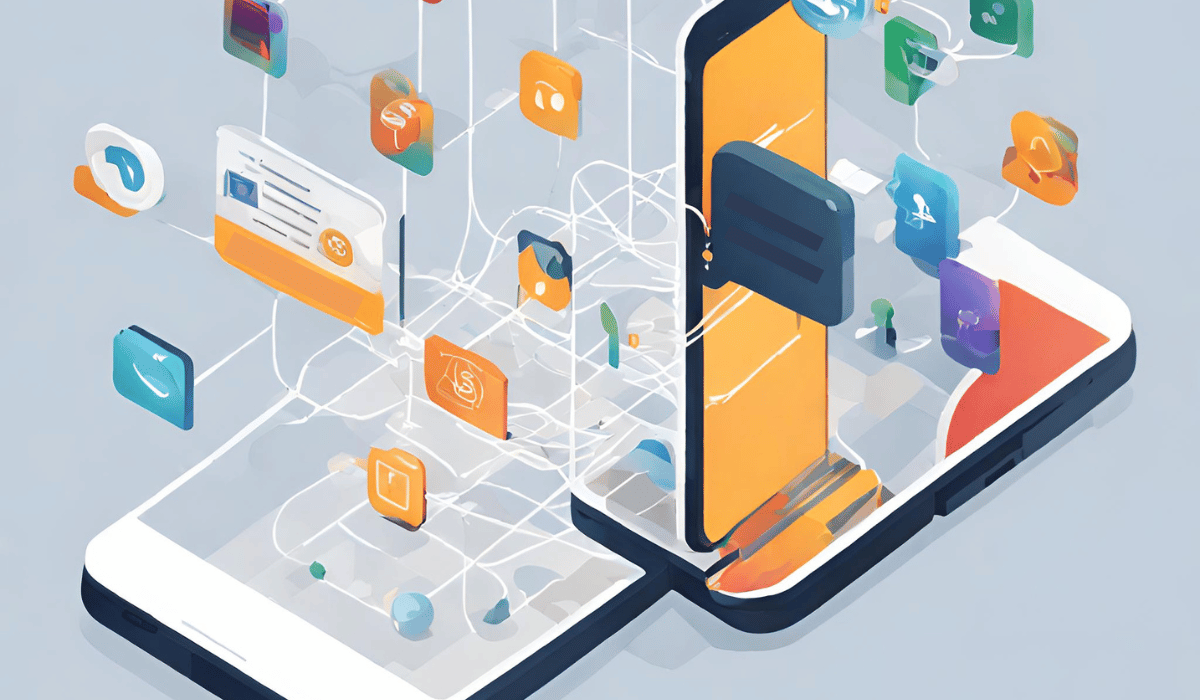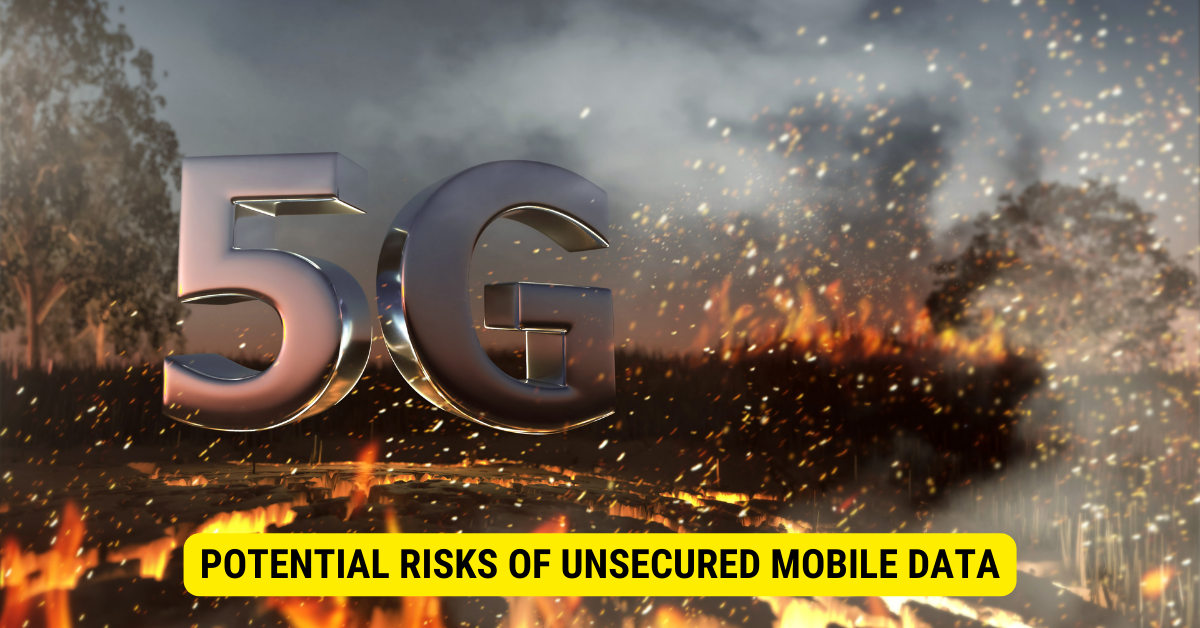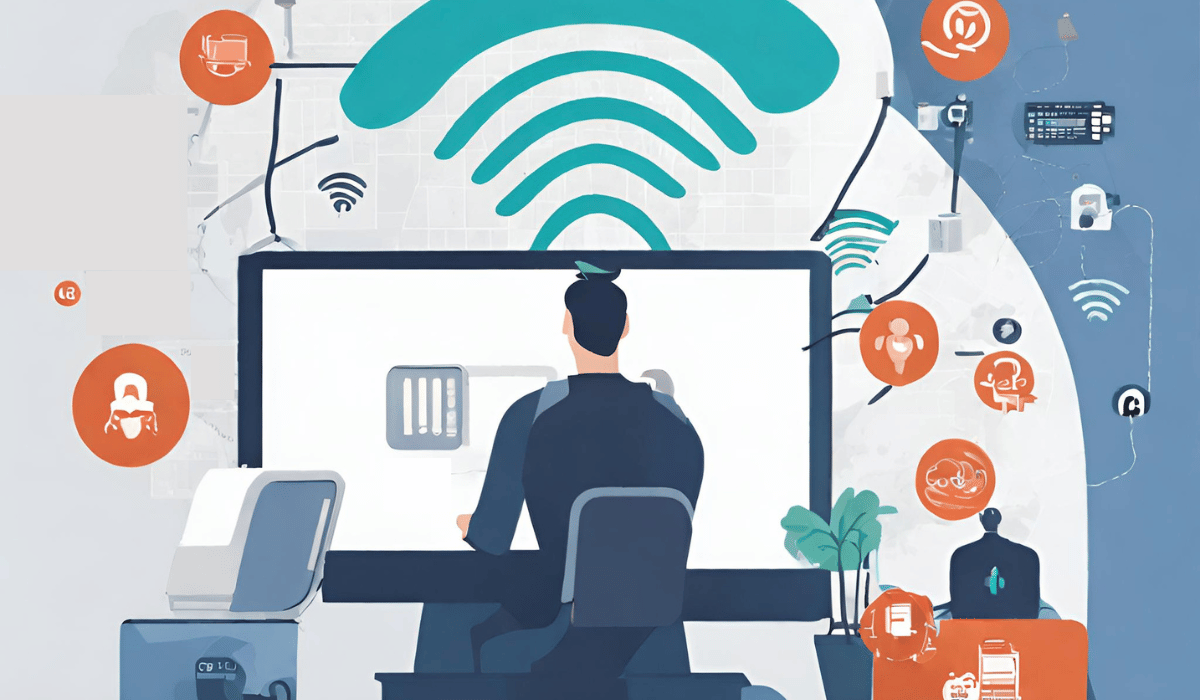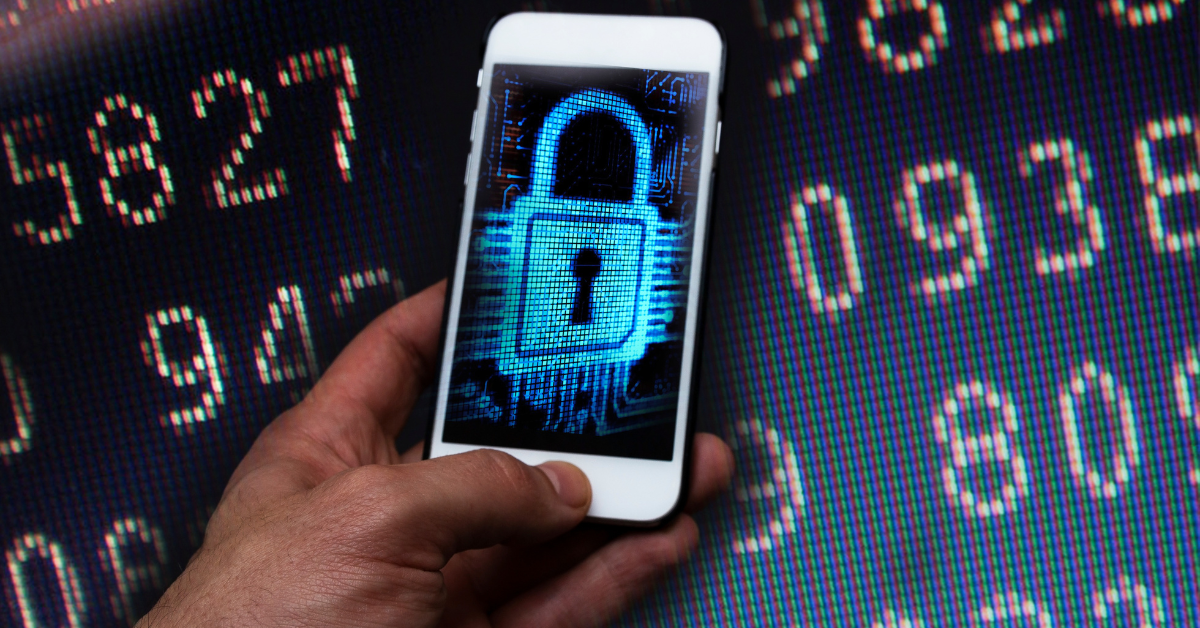A mobile data connection is generally considered secure, but it can be vulnerable to various attacks if not properly protected. It is more secure than an open Wi-Fi connection but utilizing encryption and VPNs can enhance security.
Mobile data connection has become integral to our lives in today’s digital era. Whether it’s for browsing the web, accessing social media, or conducting online transactions, we rely heavily on our mobile devices. But how secure is this connectivity? I will explore the intricacies of mobile data connections and highlight the importance of mobile data security.
Understanding Mobile Data Connection

What is a Mobile Data Connection?
A mobile data connection refers to the ability of a mobile device to connect to the internet via cellular networks. It allows users to access various online services, including email, messaging apps, and cloud storage.
In today’s digital age, staying connected is more important than ever. With a mobile data connection, individuals can access information, communicate with others, and stay up to date with the latest news and trends, all from the palm of their hand. Whether checking emails on the go, streaming videos, or using navigation apps to find their way around, a mobile data connection has become an essential part of our daily lives.
How Does a Mobile Data Connection Work?
Mobile data connections are made possible through cellular networks operated by mobile service providers. These providers allocate a portion of the electromagnetic spectrum for transmitting and receiving data signals between mobile devices and network infrastructure.
When a user sends or receives data over a mobile network, the information is broken down into small packets and transmitted via radio waves. These packets travel through network infrastructure components such as cell towers and base stations, ultimately reaching their destination.
Cell towers play a crucial role in facilitating mobile data connections. These tall structures act as intermediaries between mobile devices and the network infrastructure. They receive data signals from mobile devices and transmit them to the nearest base station, relaying the information to the appropriate destination.
On the other hand, base stations manage the data flow within the cellular network. They receive data packets from multiple cell towers and route them to their intended recipients. This intricate network of cell towers and base stations ensures that data can be transmitted efficiently and reliably, even in areas with high mobile traffic.
Moreover, mobile service providers constantly invest in improving their network infrastructure to meet the growing demands of mobile data usage. They deploy advanced technologies such as 4G and 5G to provide faster and more stable connections, allowing users to enjoy seamless browsing, streaming, and downloading experiences.
Overall, the workings of a mobile data connection involve a complex interplay of technology, infrastructure, and communication protocols. This intricate system enables us to stay connected and harness the power of the internet wherever we go.
The Importance of Mobile Data Security
Mobile data security is a topic of utmost importance in today’s digital age. With cyber threats becoming increasingly prevalent, it has become critical for individuals and organizations to prioritize protecting their mobile devices and the sensitive information they store.
Mobile devices have become integral to our lives, serving as a hub for personal and professional activities. From banking transactions to social media interactions, we rely on smartphones and tablets to handle various tasks. However, this reliance also makes us vulnerable to potential security breaches.
Why is Mobile Data Security Necessary?
The need for mobile data security arises from our mobile devices containing a treasure trove of personal and sensitive information. From contact lists and emails to photos and financial data, our smartphones and tablets hold a vast amount of data that cybercriminals can exploit if not adequately protected.
Without proper security measures, users are at risk of various threats, including identity theft, financial loss, and unauthorized access to personal information. The consequences of such breaches can be far-reaching and devastating, impacting both individuals and businesses.
Potential Risks of Unsecured Mobile Data

Risks of Unsecured Mobile Data
The perils connected with unsecured mobile data are abundant and can lead to severe consequences for users. The most notable risk is the potential interception and eavesdropping by hackers. These cyber criminals can cause serious damage by accessing sensitive information like passwords, banking details, and personal correspondences.
Potential Malicious Attacks
Moreover, hackers can initiate harmful attacks on mobile devices, infecting them with malware or ransomware. These attacks can lead to data loss, financial blackmail, and even result in complete device lockdown, making it inoperable.
Threats from Unsecured Public Wi-Fi Networks

Unprotected public Wi-Fi networks pose a substantial threat to mobile data security. Often, these networks lack adequate protection, making them a convenient gateway for hackers to intercept and exploit data transmitted between a device and the network. This situation exposes users to the risk of data theft and unauthorized access to their online accounts.
The Imperative of Mobile Data Security
In summary, the importance of mobile data security is crucial. Individuals and organizations need to enforce robust security measures to safeguard their mobile devices and the valuable data they hold. By doing this, we can diminish the risks associated with cyber threats and guarantee a safer digital environment for everyone.
Evaluating the Security of Mobile Data Connections
Mobile data connections have become integral to our daily lives, allowing us to access the internet and communicate seamlessly. However, the security of these connections is paramount to ensure our data’s confidentiality and integrity. Several factors influence the security of a mobile data connection, and understanding them is crucial for both users and service providers.
Factors Influencing Mobile Data Security
Encryption Protocols
When it comes to evaluating the security of a mobile data connection, multiple factors come into play. One of the key determinants is the encryption protocols the cellular network uses. These protocols, such as WEP, WPA, and WPA2, are designed to encrypt the data transmitted over the network, making it difficult for unauthorized individuals to intercept and decipher the information.
Security Of The User’s Device
Another critical factor is the security of the user’s device. Mobile devices, including smartphones and tablets, can be vulnerable to various security threats if not properly protected. This includes ensuring that the device’s operating system and applications are updated with the latest security patches and updates. Additionally, enabling features like device encryption, strong passwords, and biometric authentication can significantly enhance the mobile device’s and its data’s security.
Network Infrastructure
In addition to the encryption protocols and device security, the integrity of the network infrastructure plays a crucial role in safeguarding data. Mobile service providers must ensure their network infrastructure is robust and protected against attacks. This includes implementing firewalls, intrusion detection systems, and other security measures to detect and prevent unauthorized access to the network.
Furthermore, the security practices employed by mobile service providers themselves are vital in maintaining the security of mobile data connections. This includes implementing strict security policies, conducting regular security audits, and employing skilled security professionals to monitor and respond to potential threats. Additionally, timely deployment of security updates and patches is essential to address known vulnerabilities and protect against emerging threats.
Common Vulnerabilities in Mobile Data Connections
Understanding Weak Encryption Algorithms and Their Risks
Weak encryption algorithms are a known vulnerability in mobile data connections. If a mobile network uses outdated or less-secure encryption algorithms, it gives cybercriminals a potential opening to decrypt and access the data being transmitted over the network, thus compromising its confidentiality.
The Dangers of Outdated Software on Mobile Devices
The use of outdated software versions on mobile devices is another major risk. Operating systems and applications that aren’t updated regularly may have known security flaws that cybercriminals can exploit. Users need to regularly check for and install software updates to ensure their mobile devices are protected with the most recent security patches.
Social Engineering: A Non-Technical Threat to Mobile Data Security
Beyond technical vulnerabilities, social engineering techniques pose a threat to the security of mobile data connections. Cybercriminals may manipulate users into revealing sensitive information or installing harmful software. They often pose as trusted entities or use persuasive strategies to achieve this. The key to countering this threat is user awareness and education.
Mobile Malware: A Persistent Threat to Mobile Data Security
Mobile malware is another prominent concern in the realm of mobile data security. These malicious applications can exploit vulnerabilities in the mobile operating system or gain unauthorized access to sensitive data. To combat this threat, users need to be cautious when downloading applications and only use trusted sources like official app stores. The verification process in these stores and user reviews can offer insights into the app’s authenticity and security.
Adopting a Holistic Approach to Mobile Data Security
The security of mobile data connections is a complex issue that requires a comprehensive understanding of several contributing factors. These include encryption protocols, device security, the integrity of the network infrastructure, the practices of service providers, and user awareness. Users and service providers can enhance the security of mobile data connections by staying informed about the potential threats and implementing best security practices
Ways to Enhance Mobile Data Security

Using Secure Networks
One way to enhance mobile data security is to connect to secure networks whenever possible. Utilizing trusted cellular networks or encrypted Wi-Fi connections can significantly reduce the risk of data interception.
It is crucial to exercise caution and avoid connecting to public Wi-Fi networks without proper security measures. If public Wi-Fi is the only option, a virtual private network (VPN) can create a secure tunnel, protecting data from potential eavesdroppers.
Implementing VPNs for Mobile Data
A VPN adds an extra layer of security to mobile data connections by encrypting data traffic between the device and the VPN server. This encryption makes it extremely difficult for hackers to intercept and decipher the transmitted data.
Various VPN service providers offer mobile apps, allowing users to establish secure connections easily. Choosing a reputable VPN provider and ensuring that their service meets your specific security requirements is essential.
Regular Updates and Security Patches
Keeping mobile devices updated with the latest software versions and security patches is crucial for maintaining mobile data security. Manufacturers and developers regularly release updates that address known vulnerabilities and strengthen device security.
Enabling automatic updates ensures that your device receives the latest security enhancements promptly. Regularly reviewing app permissions and removing unused or unnecessary apps minimizes the attack surface.
Case Studies of Mobile Data Breaches
Impact of Mobile Data Breaches
Mobile data breaches can have far-reaching consequences for individuals and organizations alike. Personal information may be compromised, leading to identity theft or unauthorized access to financial accounts.
For businesses, a mobile data breach can result in reputational damage, financial losses, and legal consequences. The compromised data may include confidential corporate information, customer data, and intellectual property.
Lessons Learned from Past Breaches
Past mobile data breaches offer valuable lessons. They highlight the importance of proactive security measures, such as strong encryption, multi-factor authentication, and continuous network activity monitoring.
Organizations must learn from these incidents to better protect their mobile data connections. By analyzing the root causes of past breaches, industry best practices can be implemented to prevent similar incidents from occurring in the future.
Key Takeaways
- Mobile data connections (e.g., 3G, 4G, 5G) are generally considered secure for everyday internet use and activities.
- Data transmitted through mobile connections is encrypted, making it challenging for hackers to intercept and decipher the information.
- However, public Wi-Fi networks and unsecured hotspots can pose security risks, as they may lack encryption and be susceptible to man-in-the-middle attacks.
- To enhance mobile data security, users can use Virtual Private Networks (VPNs) to encrypt their traffic and protect online activities.
FAQs
What is the difference between mobile data and Wi-Fi connections regarding security?
Mobile data connections use cellular networks to transmit data, which is encrypted by default. In contrast, Wi-Fi connections depend on local wireless networks, which may or may not be encrypted. Unsecured Wi-Fi networks can expose data to potential interception and compromise.
Can mobile data connections be hacked?
While mobile data connections are generally secure, they are not entirely immune to hacking. Hackers may attempt to exploit vulnerabilities in devices, operating systems, or applications to gain unauthorized access to sensitive information. Users should stay vigilant and follow best security practices to minimize risks.
Are VPNs necessary for mobile data security?
VPNs can enhance an extra layer of security to mobile data connections, especially when using public Wi-Fi networks. VPNs encrypt data traffic, making it harder for hackers to intercept and understand the information. While not mandatory, using a VPN is recommended for sensitive online activities.
Conclusion
In conclusion, the security of mobile data connections is of paramount importance in today’s interconnected world. Understanding the nature of mobile data connections, evaluating their security, and implementing best practices can significantly enhance mobile data security. By proactively protecting our mobile devices and connections, we can safeguard sensitive information and mitigate the risks associated with mobile data breaches.
